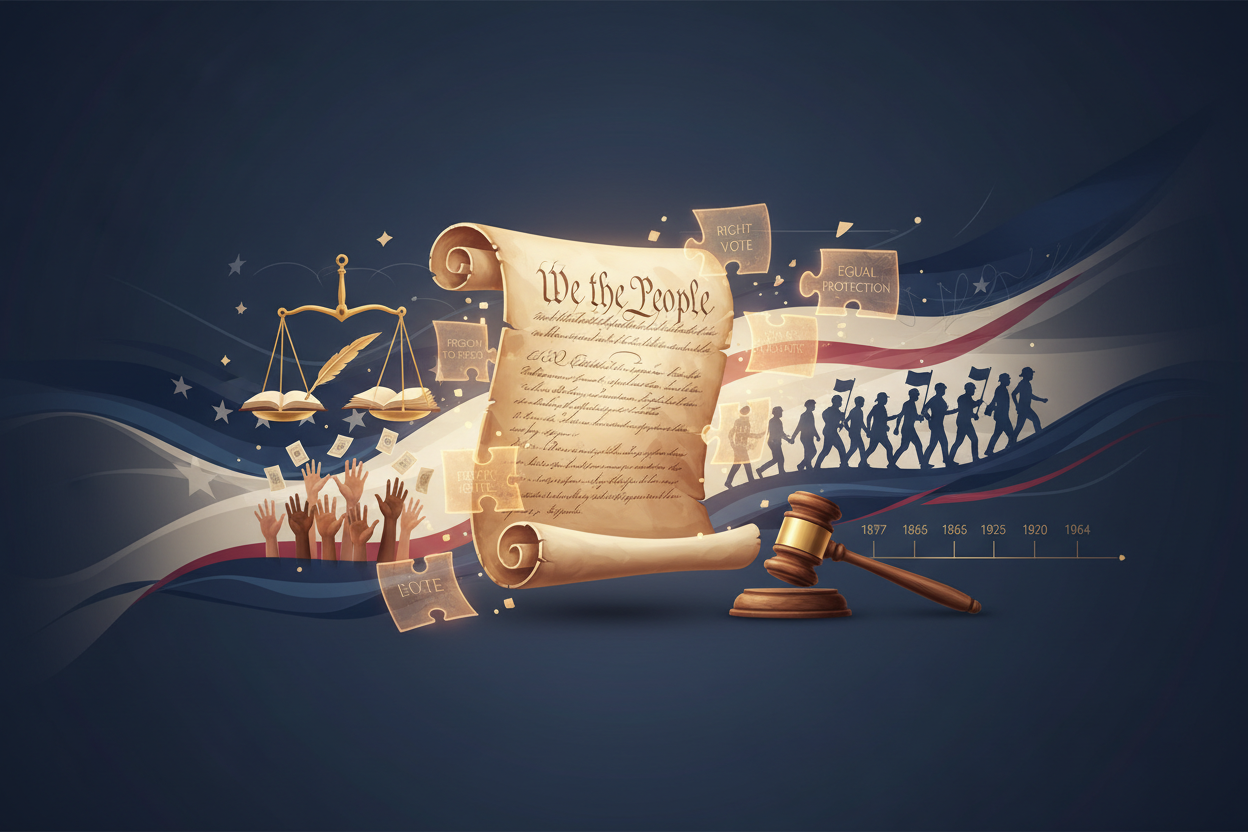Exploring Constitutional Rights: A Guide for Citizens
Understanding constitutional rights is essential for every citizen. These rights form the backbone of our freedom and democracy, influencing daily life and governance. In this guide, we will explore what constitutional rights are, why they matter, and how they protect us. Whether you’re a student, a professional, or just someone curious about your rights, this post is for you.
What Are Constitutional Rights?
Constitutional rights are the liberties and protections granted to individuals by a country’s constitution. These rights serve as a legal safeguard against any abuse of power by the government. They are enshrined in the constitution to ensure that every citizen can live freely, expressing their beliefs and opinions without fear of retaliation.

In the United States, for instance, the Bill of Rights comprises the first ten amendments to the Constitution and outlines specific freedoms, such as freedom of speech, religion, and press. These rights are fundamental to maintaining a free and open society.
Why Constitutional Rights Matter
Constitutional rights are crucial because they establish the framework within which individuals can lead their lives without oppression. They protect citizens against unfair treatment and ensure justice and equality. By setting clear boundaries for government action, constitutional rights help maintain a balance of power.

Without these rights, citizens could be subject to arbitrary laws and decisions that could infringe on personal freedoms. Thus, understanding and exercising these rights is imperative for maintaining personal autonomy and civic engagement.
Key Constitutional Rights You Should Know
The constitution of a country often includes many rights, but some are more prominent than others. Here are a few key constitutional rights that are essential for every citizen to understand:
1. Freedom of Speech
One of the most cherished rights, freedom of speech, allows individuals to express their thoughts, ideas, and opinions openly. This right is crucial for a healthy democracy, as it promotes open dialogue and the exchange of ideas.
2. Right to Privacy
The right to privacy ensures that individuals have a sphere of personal space free from government intrusion. This right protects personal information, communications, and activities from unwarranted surveillance.
3. Right to a Fair Trial
This right guarantees that anyone accused of a crime receives a fair and public hearing by an impartial tribunal. It includes the right to legal counsel, the right to confront witnesses, and the right to be presumed innocent until proven guilty.
4. Freedom of Religion
Freedom of religion allows individuals to practice any religion of their choice or none at all, without government interference. This right is fundamental to ensuring religious diversity and tolerance.
How to Exercise Your Constitutional Rights
Exercising your constitutional rights involves being informed and proactive. Here are some steps to help you make the most of your rights:
Stay Informed
Knowledge is power. Stay informed about your rights by reading the constitution, attending seminars, and following reputable news sources. Understanding the scope and limitations of your rights will empower you to defend them effectively.
Engage in Civic Activities
Participate in civic activities such as voting, attending town hall meetings, and joining community groups. These activities not only help you exercise your rights but also strengthen democracy by ensuring that diverse voices are heard.
Seek Legal Help When Necessary
If you believe your rights have been violated, don’t hesitate to seek legal assistance. Lawyers and legal organizations can provide guidance and representation to help you navigate complex legal situations.
Conclusion
Constitutional rights are vital to our freedom and democracy. By understanding and exercising these rights, we can protect ourselves and contribute to a just society. Remember, your rights are not just legal technicalities; they are powerful tools for ensuring dignity, freedom, and fairness. Stay informed, stay engaged, and protect your rights.
Frequently Asked Questions (FAQs)
What is the importance of constitutional rights?
Constitutional rights are important because they protect individuals from government overreach, ensuring freedom, justice, and equality. They form the foundation of a democratic society.
How can I learn more about my constitutional rights?
You can learn more about your constitutional rights by reading your country’s constitution, attending workshops, and consulting legal experts. Online resources and educational platforms can also provide valuable information.
What should I do if I believe my rights have been violated?
If you believe your rights have been violated, contact a legal professional or a civil rights organization for assistance. They can offer guidance and representation to address the issue.
Can constitutional rights change over time?
Yes, constitutional rights can change through amendments and judicial interpretations. It is important to stay informed about any changes to understand how they may affect you.





Leave a Reply
You must be logged in to post a comment.